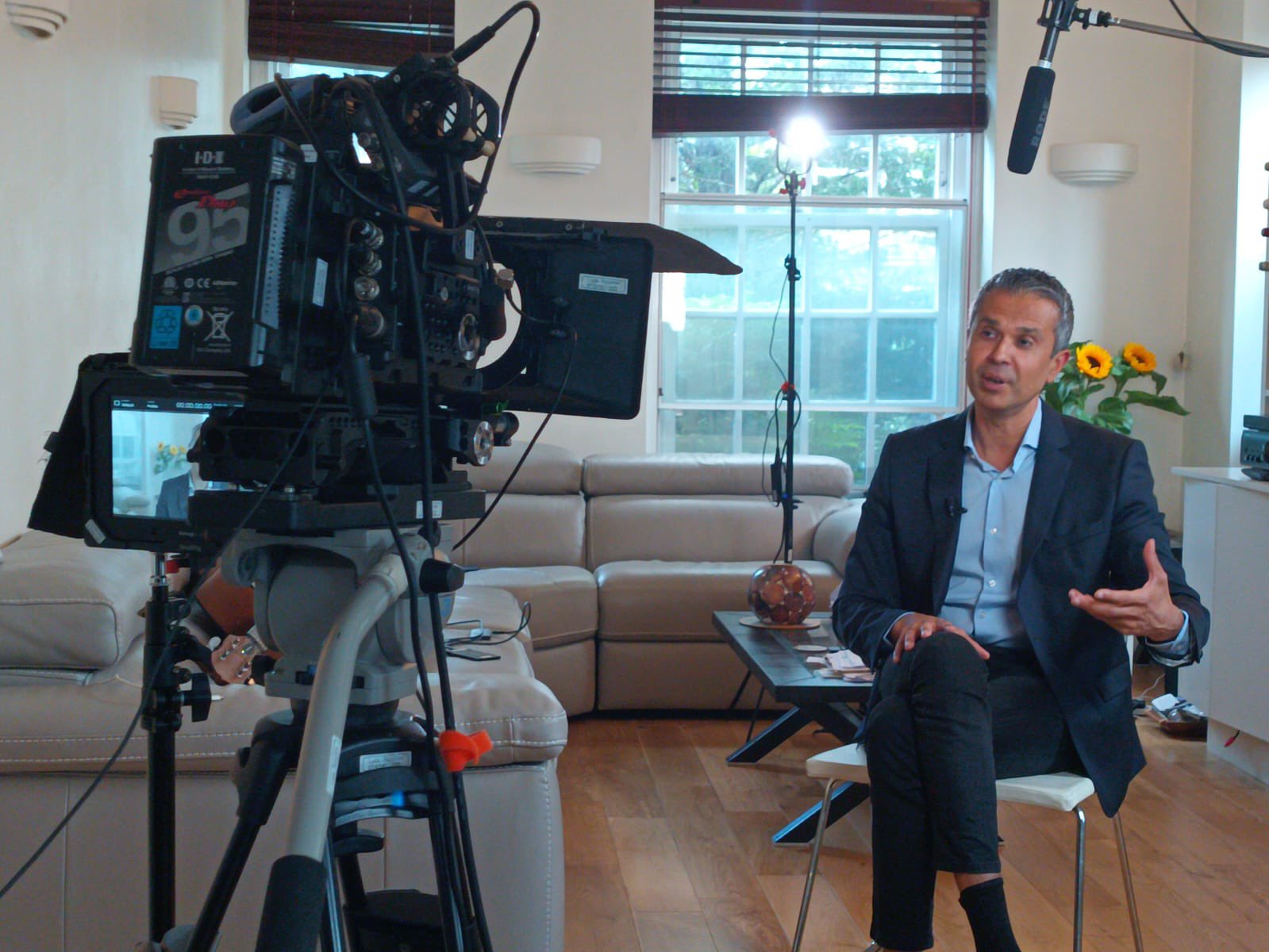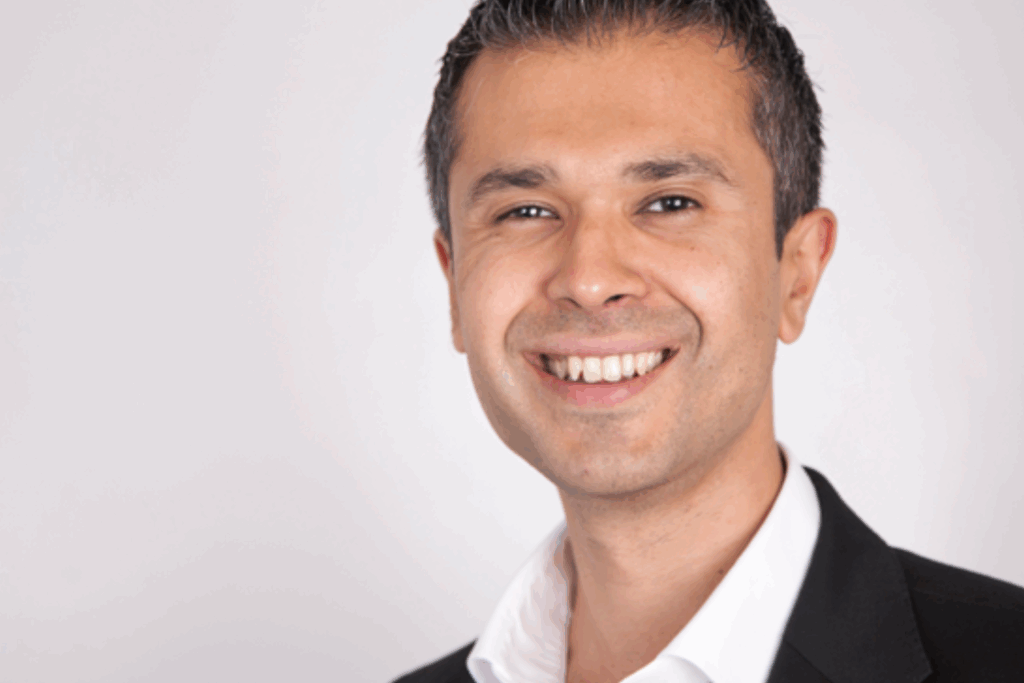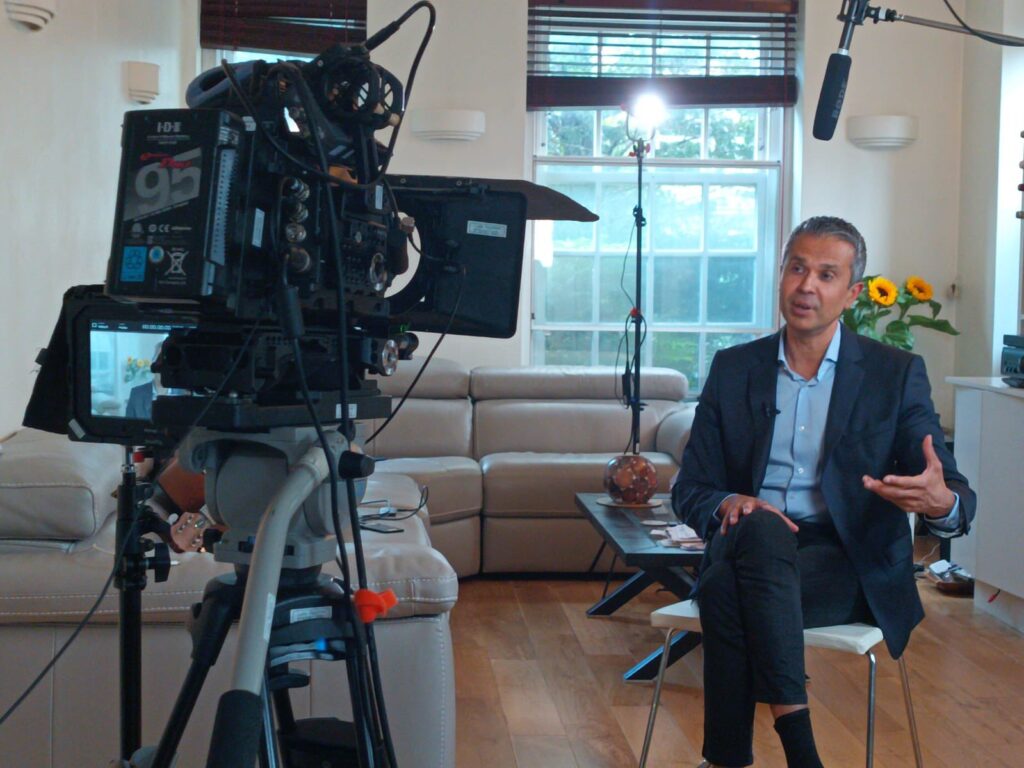MAHA Chief Medical Advisor Dr. Aseem Malhotra Just Declared That No One Should Have Ever Taken the COVID mRNA Vaccines.

We live in a world where the loudest voices often belong to the most powerful institutions. Medicine. Media. Government. And we’re told, “Trust the science,” as if science is a destination rather than a conversation. But what happens when someone inside that system steps up—not to tear it down, but to question whether it’s still listening?
At a Reform U.K. conference in Birmingham, Dr. Aseem Malhotra, a British cardiologist and adviser to U.S. health figure Robert F. Kennedy Jr., stood before a live audience and said, “It is highly likely that not a single person should have been injected with this.” He was talking about the COVID-19 mRNA vaccines. And his words didn’t stop there. He went on to suggest that the vaccines may be linked to the cancer diagnoses of King Charles III and the Princess of Wales.

The backlash came quickly. Scientists dismissed it. Politicians condemned it. But beyond the outrage and the headlines lies a more important question—one we don’t ask enough: can a system designed to protect truth still tolerate people who speak it differently?
This wasn’t just about vaccines. It was about what happens when someone inside the castle starts knocking on the walls. When credentials clash with consensus, and when belief—no matter how carefully reasoned—becomes unwelcome. This moment didn’t just divide opinion. It exposed a deeper fracture between the right to question and the need to conform. And whether we agree or disagree, that fracture should concern us all.
The Mic Was His. But Who Was Ready to Listen?
At an event called Make Britain Healthy Again, Dr. Aseem Malhotra stood on stage with a mic—and a message. He told the audience that mRNA vaccines were “interfering with genes,” backed by “hundreds of studies,” and then asked a pointed question: “Have you heard anything anti-vax or conspiracy theory so far here?”
Some nodded. Others paused. And the rest of the world? It roared back.

Reform U.K.—the party hosting the event—immediately took a step back. A spokesperson made it clear: Malhotra was “a guest speaker with his own opinions” and clarified, “Reform U.K. does not endorse what he said but does believe in free speech.”
But even free speech has its limits—especially when it dances at the edge of public health. Wes Streeting, the U.K.’s Health Secretary, didn’t hold back. “With falling numbers of parents getting their children vaccinated, and a resurgence of disease we had previously eradicated, it’s shockingly irresponsible for Nigel Farage to give a platform to these poisonous lies,” he said. “Farage should apologise and sever all ties with this dangerous extremism.”
With falling numbers of parents getting their children vaccinated, and a resurgence of disease we had previously eradicated, it’s shockingly irresponsible for Farage to give a platform to these poisonous lies.
— Wes Streeting (@wesstreeting) September 6, 2025
He should apologise and sever all ties with this dangerous extremism. https://t.co/bZvi9gghsf
In those few minutes on stage, Malhotra didn’t just share a belief. He challenged a structure. A belief system. An identity. And when that happens—when someone walks into the center of the room and says, “Maybe we got it wrong”—people don’t always engage. They defend.
This wasn’t just a controversial speech. It was a stress test for public conversation. It revealed how quickly we turn disagreement into danger, how fast we push back on a voice instead of sitting with what it asks of us. Whether or not Malhotra was right isn’t the only question. The deeper one is this: are we still capable of holding uncomfortable truths without tearing each other apart?
When Fear Spreads Faster Than Facts
In emotionally charged conversations about health, it’s easy to get caught in fear—especially when a claim comes from someone with credentials. But fear, no matter how loud, isn’t proof. And when we step back from the noise and return to the data, a clearer picture begins to emerge—one rooted not in speculation, but in patterns, oversight, and lived experience.

Health institutions around the world, from the U.S. to the U.K., have reviewed the available evidence and continue to maintain that there is no confirmed link between COVID-19 vaccines and cancer. The U.S. National Cancer Institute points out that vaccines actually reduce the risk of severe illness from COVID-19 in cancer patients, especially those who are immunocompromised. The virus itself, not the vaccine, poses the greater danger in those cases.
The Centers for Disease Control and Prevention has echoed that stance, emphasizing that vaccine safety is continually assessed through real-world monitoring. While rare side effects exist—as they do with any medical intervention—the overall benefit of preventing serious illness and death remains strong and statistically consistent.
In the United Kingdom, the National Health Service has reiterated that all vaccines in use “have met strict standards of safety, quality and effectiveness.” Serious side effects, they report, are very rare. These vaccines are also subject to ongoing review by the Medicines and Healthcare products Regulatory Agency, which continues to monitor outcomes closely.
Cancer Research UK directly responded to the recent vaccine claims made at the Reform U.K. event. Their statement was clear: “There is no good evidence of a link between the COVID-19 vaccine and cancer risk. The vaccine is a safe and effective way to protect against the infection and prevent serious symptoms.”
We live in an age where information is accessible, yet trust feels fragile. But the solution to fear is not more fear—it’s understanding. When emotions run high, facts must stand even taller. And in moments like this, our commitment to clarity matters just as much as our right to ask questions.
When Politics Begins to Rewrite the Science
While Dr. Aseem Malhotra’s comments drew intense attention in the U.K., the ripple effects of the vaccine debate were already gaining traction across the Atlantic. In August 2025, a major shift in U.S. health policy quietly signaled that the conversation was no longer just about public opinion—it was about funding, access, and the future of how we respond to disease.
On August 5, the Department of Health and Human Services, under the leadership of Secretary Robert F. Kennedy Jr., announced the termination or de-scoping of 22 federally funded mRNA vaccine projects, collectively worth nearly $500 million. In his official statement, Kennedy claimed, “BARDA is terminating 22 mRNA vaccine development investments because the data show these vaccines fail to protect effectively against upper respiratory infections like COVID and flu. We’re shifting that funding toward safer, broader vaccine platforms that remain effective even as viruses mutate.”
That decision triggered immediate backlash from the scientific and medical communities. Researchers from institutions like Johns Hopkins publicly disputed the reasoning, emphasizing that mRNA vaccines had not only reduced hospitalizations and deaths during the height of the pandemic, but were also being explored for new frontiers—most notably in cancer vaccine development. Critics warned that Kennedy’s move was built on a flawed interpretation of efficacy and risked slowing down innovation in some of the most promising areas of modern medicine.
Lawmakers responded quickly. By September, members of Congress had inserted provisions into the 2026 federal spending bill to preserve funding for mRNA research at BARDA. The bipartisan response reflected more than policy disagreement—it signaled concern over the politicization of scientific infrastructure and its long-term consequences.
Dr. Malhotra’s alignment with Kennedy places his vaccine skepticism within a broader ideological realignment, one that goes beyond health debates and begins to influence how institutions allocate resources, shape public perception, and frame scientific progress. What once existed at the fringe now finds itself at the center of budget negotiations and national health strategy.
This moment serves as a reminder that science does not exist in a vacuum. It lives inside the systems we build—systems shaped by values, leadership, and yes, politics. And when political decisions override the consensus of the scientific community, the cost isn’t just measured in dollars—it’s measured in lives, in innovation stalled, and in the erosion of public trust in the very tools that could save us.
When the Wrong Words Travel Faster Than the Right Ones
We live in an age where information moves faster than intention. A single sentence—especially one that challenges the mainstream—can echo across continents before science has a chance to respond. When someone suggests, even subtly, that vaccines might have caused illness in public figures, the impact goes far beyond curiosity. It plants doubt. And doubt, when it spreads unexamined, becomes dangerous.
Health experts have been warning us about this for years. The World Health Organization has long identified vaccine hesitancy as one of the top global threats to health. In their words, “The reluctance or refusal to vaccinate despite the availability of vaccines threatens to reverse progress made in tackling vaccine-preventable diseases.” That statement didn’t appear in reaction to today’s headlines—it was issued years ago. And yet, here we are, watching those same fears take root once again.
In 2025 alone, the United States recorded over 1,400 confirmed cases of measles—an illness most of us believed was nearly eradicated. The Centers for Disease Control and Prevention connected many of those outbreaks to communities with lower vaccination rates, where trust had already started to break down. In the United Kingdom, the numbers were even more sobering. The UK Health Security Agency confirmed nearly 3,000 cases of measles in 2024, the highest total in over a decade. A child died in 2025. That detail should not be brushed past—it’s the kind of fact that makes these conversations real.
These are not statistics born from fringe ideology. They are the natural consequence of misinformation left unchallenged. And while platforms, politicians, and public figures may defend the right to speak freely, we must also defend the right to stay alive—and that means defending truth. Verified truth. Not emotional truth. Not viral truth. Factual, tested, peer-reviewed truth.
We must remember that the freedom to speak comes with the responsibility to know when we’re speaking into a fire. In the end, the words we choose—especially on matters of health—can either protect the collective or endanger it. And once those words are released, we don’t get to choose who they reach or what they’re used to justify.
So if you have a platform, use it with care. If you have a question, ask it with integrity. And if you have doubt, let it lead you toward deeper understanding—not louder division.

From Noise to Clarity: What This Teaches Us About Mental Focus and Inner Power
This story isn’t just about vaccines. Or science. Or politics.
It’s about your ability to think clearly in a world that profits from confusion.
In a time when headlines are louder than wisdom and opinions feel more powerful than facts, we’re being challenged—not just to stay informed, but to stay aligned. That’s not easy. Every day, we’re hit with claims, contradictions, and comment sections trying to tell us who to trust and what to fear. But here’s the deeper truth: mental clarity is not something you stumble into. It’s something you practice.
When you learn to filter noise from knowledge, you sharpen a skill that goes far beyond current events. You train your mind to focus. You create space for critical thinking. And from that space, your energy becomes more intentional—less reactive, more directed.
Let this moment be your reminder: clarity isn’t just about being “right.” It’s about being centered.
Ask yourself—what am I letting into my awareness each day? Am I chasing information, or understanding? Am I filling my time with distractions, or aligning it with purpose?
The discipline of checking your sources is no different from the discipline of checking your own inner dialogue. Both are habits that shape your well-being. When you become more selective with your attention, you gain more control over your emotional state, your motivation, and your ability to stay focused in a distracted world.
You don’t need to have all the answers. But you do need to protect the quality of your mind.
That’s where your real power lives—not in knowing everything, but in having the awareness to know what deserves your energy.
Master Your Mind Before the World Programs It
This isn’t just a story about medicine—it’s a reminder of how easily we lose our mental clarity in a world overflowing with noise.
Every headline, every opinion, every viral claim is competing for your attention. But clarity isn’t something that comes from scrolling. It comes from stillness. From questioning with purpose. From choosing truth over drama.

When you practice filtering fact from fear, you build more than knowledge—you build focus. And focus is the foundation of every meaningful thing you want to create: better health, deeper purpose, stronger results.
If you want more peace, protect your mental space. If you want more drive, sharpen your discernment. When you stop letting the world decide what you think, you start leading your own life—with power, not panic.
That’s not just wellness. That’s freedom.
Featured Image from Dr. Aseem Malhotra on Twitter
Loading...

